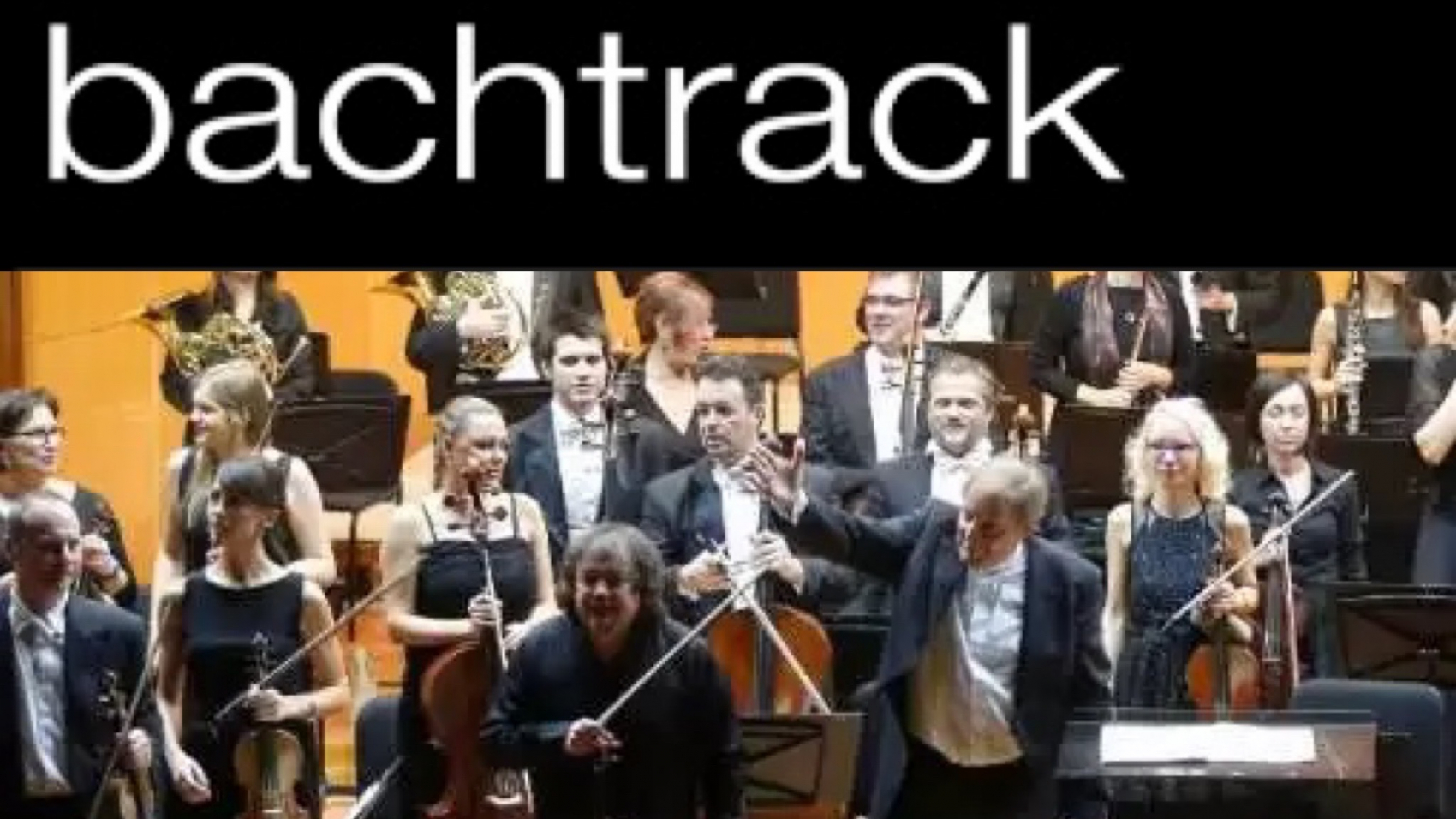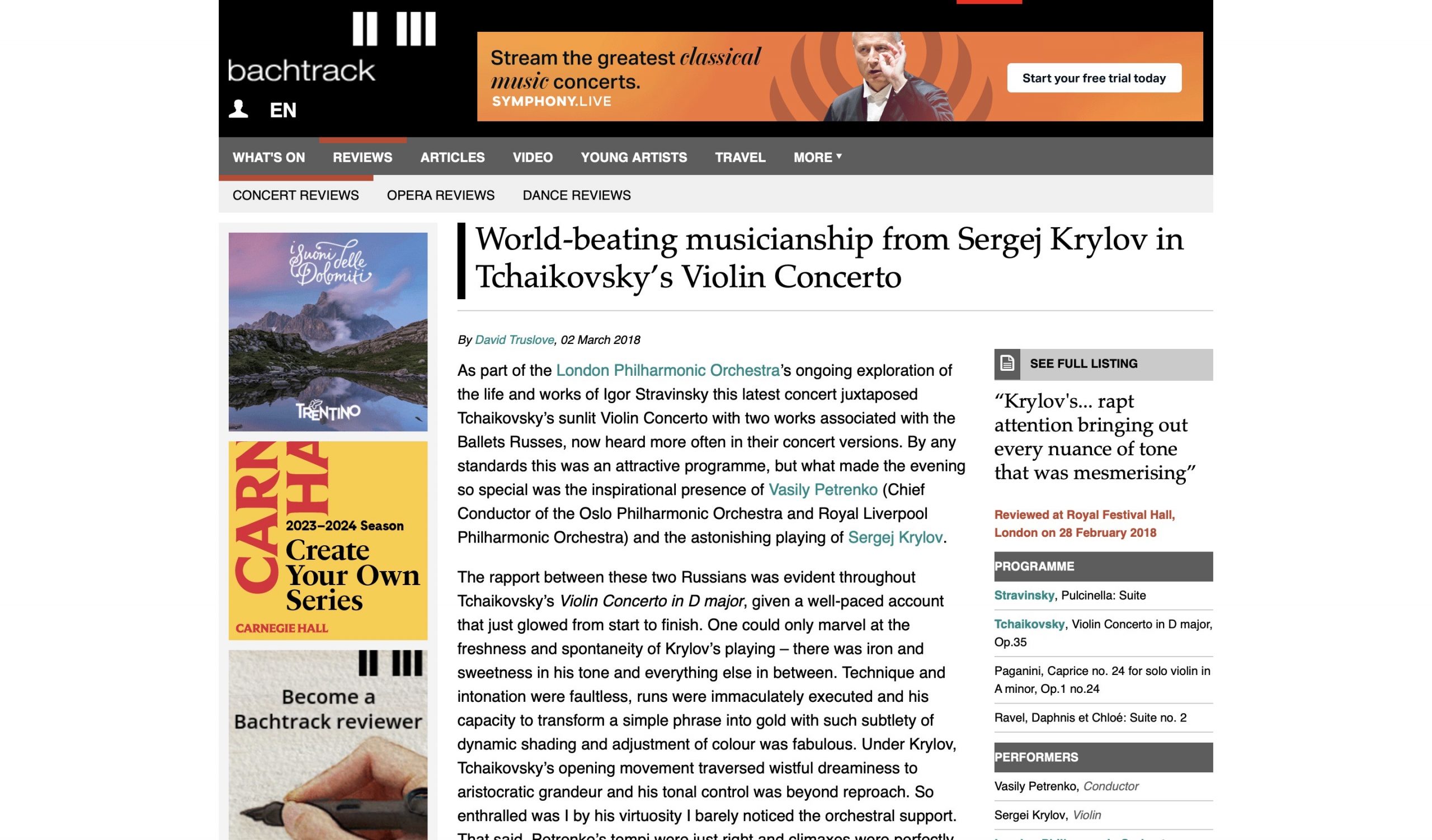Bachtrack Review: Krylov, Griffiths, Belgrade Philharmonic, Kolarac Concert Hall
Peter Connors, November 22, 2019
Sergej Krylov and the Belgrade Philharmonic: a fine partnership in Beethoven.
The Belgrade Philharmonic’s exploration of Beethoven continued last night with a magisterial performance of his Violin Concerto in D major by Russian violinist Sergey Krylov. Without an overture to warm the audience up, those opening bars with their gentle timpani beats evoked a magical atmosphere. British conductor Howard Griffiths established the scene in the orchestral exposition with its varied moods but the real excitement began when the soloist joined them.
Krylov established his presence in an unfussy, leisurely manner. This was bound to be a fine partnership between soloist and orchestra, and so it proved. The gloriously rich sound of his instrument was one which he could adapt to be forceful, cajoling, calm or jovial as the moment required. And how he made his violin sing! Krylov wore his virtuosity lightly. He never took the limelight at the expense of the orchestra. Beethoven’s is not a “soloist versus orchestra” concerto, and the orchestra is never relegated to the role of mere accompanist. Krylov seemed to relish stepping back from his sections prominence to let the orchestra shine. Surely it is significant that he spent much of the performance side-on to the audience, looking at the conductor. The cadenza towards the end of the first movement gave him the opportunity to display his virtuosity (as did the two encores he gave after the concerto). The second movement was more dreamy and Krylov showed the expressive side of his playing, revelling in the flowing melodies, often contrasting with the orchestral timbre. Again he was happy to exchange roles with the orchestral players. It all came together in the spirited Rondo finale with lyrical, reflective and energetic playing from soloist and orchestra alike.
It is remarkable that Beethoven’s concerto was not successful at first and had to wait until a young Joseph Joachim took it up in 1844 to become a part of every solo violinist’s repertoire and an audience favourite – the same Joachim to whom Schumann dedicated his Symphony no. 4 in D minor which formed the second half of this concert.
Schumann thoroughly revised his symphony some ten years after it first performance, adding many details and amending the orchestration. Many have preferred the earlier, lighter version,
but tonight we had the revised 1851 version and Griffiths made the most of the warm, rich textures of the piece. He allowed the details to come through; here the horns became prominent, there the woodwind emerged from the wash of sound and a light touch was applied where necessary, as in parts of the finale. He also kept the rhythmic drive of the symphony going and created atmospheric moods such as the slow, mysterious
and moments of grandeur later in the first movement. The lovely melody of the Romance second movement was beautifully done. The insistent Scherzo brought energy to the piece with a more lilting central section. The slow beginning of the fourth movement suggested that something momentous was going to take place and it did, but in a lively, positive manner, leading to a glowing conclusion.
The two works in the programme felt as if they belonged together: both serious but not solemn, warm, positive pieces that left the audience feeling uplifted, and both given fine performances.
opening of the symphony

